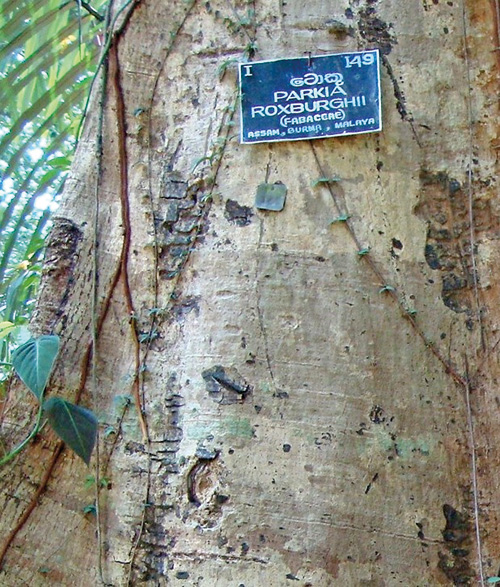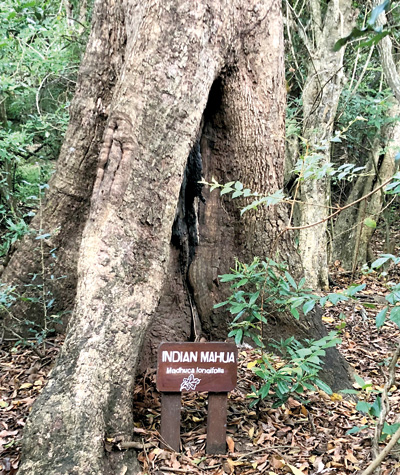Economics of “double standards”
View(s):As I reached the university one morning, I saw a student who had climbed on a chair placed on another table close to a tree in the compound, hammering a nail on the tree. He climbed down after finishing what he was doing and smiled with me too. I started a chat with him, while walking towards the building in front of us.
During our chat, I asked him about his studies, home and parents too. Apparently, my next question not only shocked him, but also confused him. I asked him again: “Do you fix nails on trees at your home garden?”
Then I clarified what I wanted to convey to him: “Although we don’t fix nails on trees in our home garden, we do so in the university; if we look around, we may find many nails fixed on trees are also left on them permanently. There is a difference; right? Why is that? Ok, I must go now and, have a good day”.
Double acting
After reading the above paragraphs, you might be wondering why there are nails on trees in the university! Well, they are to fix or hang various things for public attention such as red flags, black flags, white flags, banners, poster frames and, many other things.
As my question implies, we don’t fix nails on trees that are in our own home gardens. But we don’t mind doing that if the tree doesn’t belong to us!
We don’t stick notices and posters on our own walls at home, but we don’t mind doing it on the walls on roads and other places or objects which are not ours. We want to keep our own home clean and tidy without interferences by others, but we don’t mind littering and messing up places which are not our own.
We, humans, have a tendency for “double acting”. However, I did not pose this question to talk about the “sinful” nature of the human mind or the lack of morality and discipline in our society or the weakness of our law-enforcing authorities. There is no question that they all are important too.
My focus is essentially on the economics of “double acting”. From an economic point of view, it is related to the issue of property rights as well as economic progress.

Tree in a public park with the name board nailed to the tree
Property rights
There are different types of property ownerships such as private property, public property, common property and, nobody’s property. An economic question arises when people act differently between their own property and other property.
What is even more important is that “property ownership” is directly linked to economic development. Property rights, though rarely discussed in popular economic forums, have received much attention because it is a hidden key to economic prosperity.
Properties are the “physical assets” which can include anything that has the ability to create wealth: land, vehicle, machine, factory, hotel, stadium, monument, river, or anything as such can be considered as an asset; put into proper usage with human intervention. They all have the capacity to create wealth and, wealth creation leads to prosperity.
With investment, a country can increase the stock of assets or improve the quality of assets. Then the country’s ability to create wealth is expanded so that the country will develop and prosper.
Does ownership matter?
Economic development of a country is creating wealth from its assets by people, communities, companies and, government. If it is creating wealth from assets, the “ownership” of such assets is directly related to the capacity of creating wealth.
Property right is the legal entitlement to own an asset and to make use of that asset at the owner’s will. This definition shows two aspects of property rights; the legal ownership of an asset is one aspect and the ability to have control over the asset is the other aspect.
The legal ownership alone does not determine the property right, if the owner does not have the authority to determine the use of the property.
Therefore, property rights include not only the ownership of property but also the rights to use property, to gain from property, to transfer or sell property, and to exclude others’ interference.
· People who exercise the exclusive authority over their private property have the ability to make use of property to generate wealth compared to others who do not have the exclusive authority. Property rights as such are in the heart of wealth creation in contributing to prosperity of a country.
People care more about their own private property than other property. They make use of the properties which do not belong to them for private gain, when the property rights are not enforced. People may use, misuse and abuse such assets, and contribute less to wealth creation.
Public enterprises
Enterprises, whether they are under private ownership or public ownership, are assets of a country which have the ability to create wealth. But why do private and public enterprises perform differently? Unlike the private enterprises, the public enterprises which perform poorly often come under criticisms for making losses and becoming a burden to the nation.
It is a question of property rights: The ownership is different from the control over it. According to political rhetoric public enterprises are “owned by people” which doesn’t make much sense. In a pragmatic view, it is difficult to identify the “real owner” of a public enterprise.
Who controls public enterprises is the second question. Although there is no clearly defined “ownership” of the public enterprise, various parties – individuals or interest groups such as trade unions, political unions and family unions as well as their appointed representatives -, they all have the control power at various degrees. The same people act differently, when they have their own private enterprises.

Tree in a private environment (name board not nailed)
By the regal status of public enterprises, they are made free from market challenges; they cannot be taken over (i.e. acquiring the ownership is not possible) and they cannot be declared bankrupt (i.e. government is bound to bear the losses from tax money). This means that the above parties have the ability to make use of public enterprises for private gain and pass the responsibility to the public.
“Tragedy of the commons”
There are common properties and, perhaps nobody’s properties, of which the benefits have to be shared by people and communities; beaches, oceans, forests, lakes, and reserved lands could be some of the examples.
In economics, the main problem that arises from common properties is called the “tragedy of commons” – their original value and the intended purpose are lost due to overuse, misuse and abuse.
Because, there is no clearly defined ownership as well as controlling power over common property, people tend to grab as much as possible before others. Since there is no exclusion of others interference, many who interfere tend to not bother about pollution and degradation that their actions might cause to common property.
There are reservations of land either side of roads and railway tracks, canals and rivers and, some other areas which the country has gradually lost due to private acquisitions, because they were virtually nobody’s property.
In fact, proper regulatory mechanisms and law-enforcement is the effective way of managing common properties in many countries. If the government in weak in regulating and enforcing, it is a real tragedy of a nation.
Rich and poor
Our discussion clearly shows that achieving economic development has much to do with “property rights”. Some countries are rich and some are poor. If wealth creation depends on investment, why cannot they generate investment alike? The answer is the differences in property rights.
Even in the case where ownership does not matter, there are enforced regulatory mechanisms and higher levels of value systems, preventing anyone from misusing and abusing assets.
(The writer is a Professor of Economics at the University of Colombo and can be reached at sirimal@econ.cmb.ac.lk)


